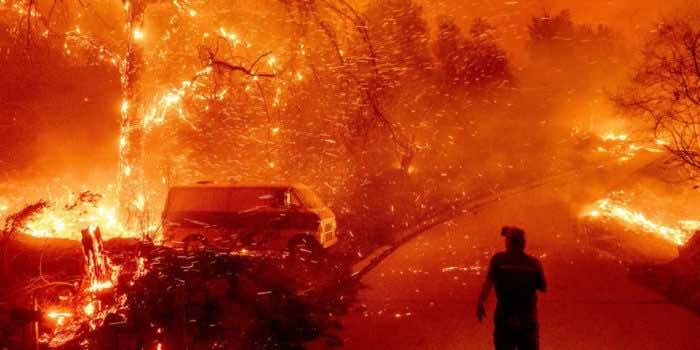The Intergovernmental Panel on Climate Change has declared climate change as a global level crisis this Monday.
“I have seen many scientific reports in my time, but nothing like this,” António Guterres, the UN secretary-general, said. “Today’s IPCC report is an atlas of human suffering and a damning indictment of failed climate leadership.”
The world has warmed 1.09 degrees Celsius (1.96 degrees Fahrenheit) above preindustrial levels.
“We’re seeing adverse impacts being much more widespread and being much more negative than expected in prior reports,” said Camille Parmesan, an ecologist at the University of Texas at Austin and one of the lead authors of one of the report’s chapters, during a press briefing Sunday.
The Paris Agreement’s aim was to keep the warming under 2 degrees Celsius (3.6 degrees Fahrenheit) and a stricter goal of limiting warming to 1.5 degrees Celsius (2.7 degrees Fahrenheit). “This [report] has opened up a whole new realm of understanding of what the impacts of overshoot might entail,” Parmesan said.

Half of the world’s living organisms are changing their habitats because of climate change, disrupting ecosystems around the world. Half of the world’s human population also faces water scarcity at some point in the year. Food systems are also threatened. In a worst-case scenario, up to 9 million additional people could die from climate change effects by the end of the century.
The IPCC last released a set of reports like these in 2014. The next time a comprehensive review will come out will probably be in another five to seven years.
The report highlights some hope by stating that mitigation will be important in the coming decades, and leaders need to be increasingly aware of how climate change will affect their regions and understand that corrective measures are absolutely necessary.

“If regions are not prepared, then people die that don’t need to,” Kristie Ebi, an epidemiologist at the University of Washington and one of the lead authors of one of the report’s chapters, said during the press briefing, referencing the heatwave that hit the Pacific Northwest last year and killed hundreds of people. “Nobody needs to die in a heatwave. And it’s critically important to start looking at these increases in extreme weather and climate events, looking at the people in harm’s way, mostly the poor and the marginalized, and making sure that efforts are undertaken to protect and promote health and wellbeing in those communities. If we don’t, then you saw what the risks look like into the future.”
“There isn’t a silver bullet that’s gonna solve our greenhouse gas emissions,” said Ebi. “It’s important to understand that every action matters.”


